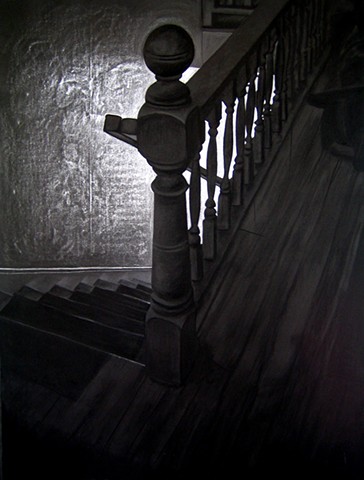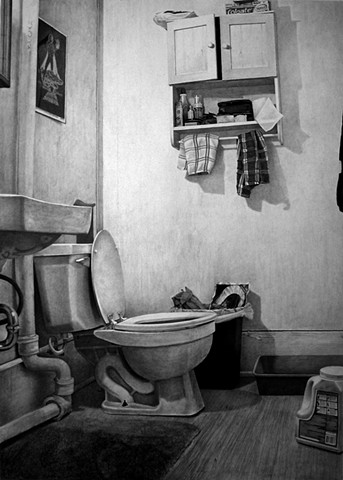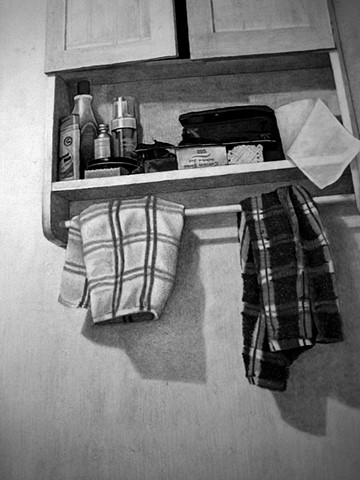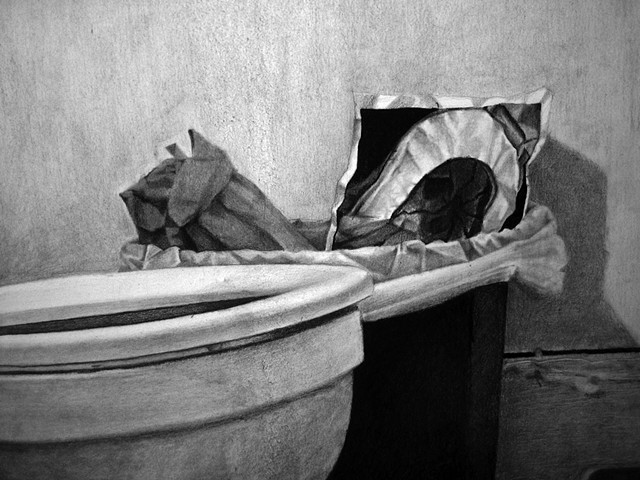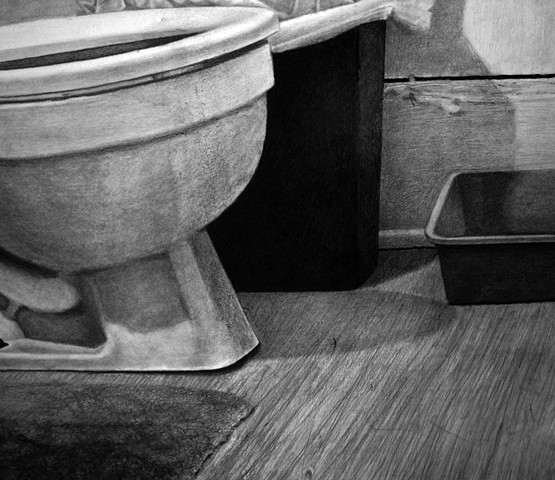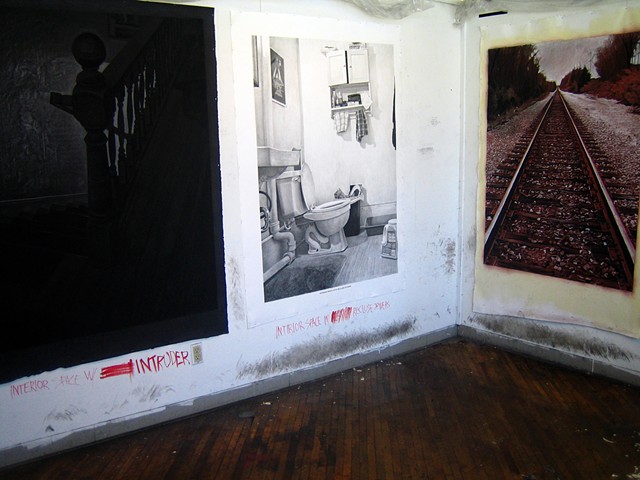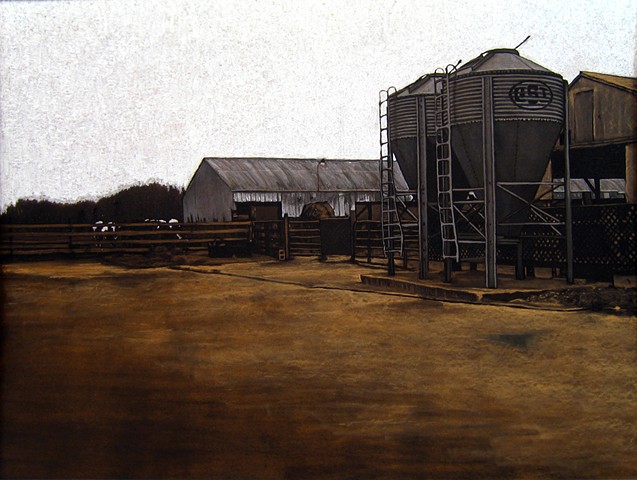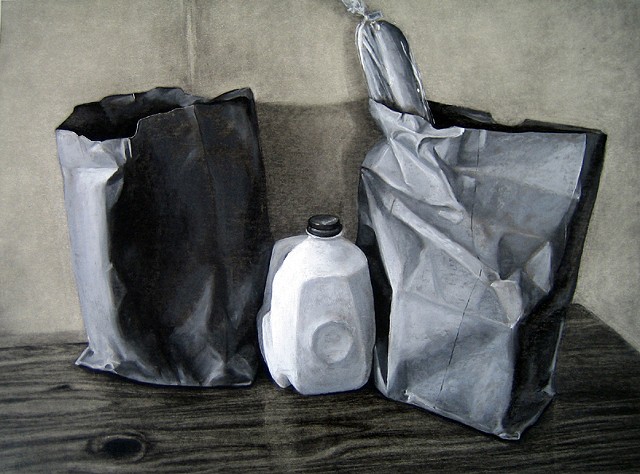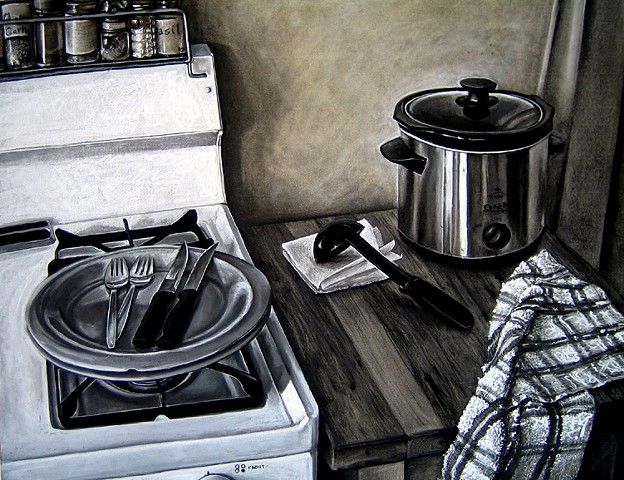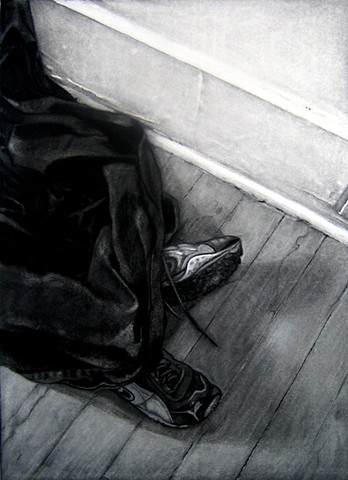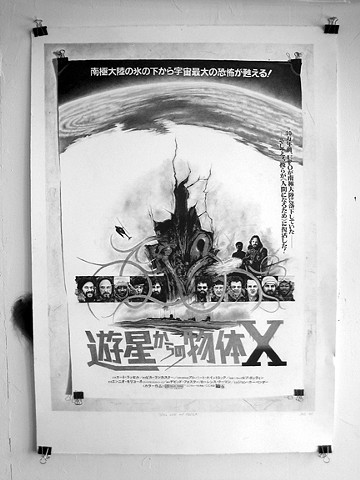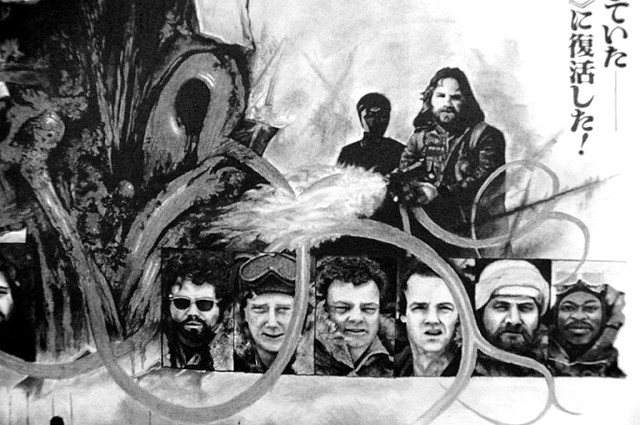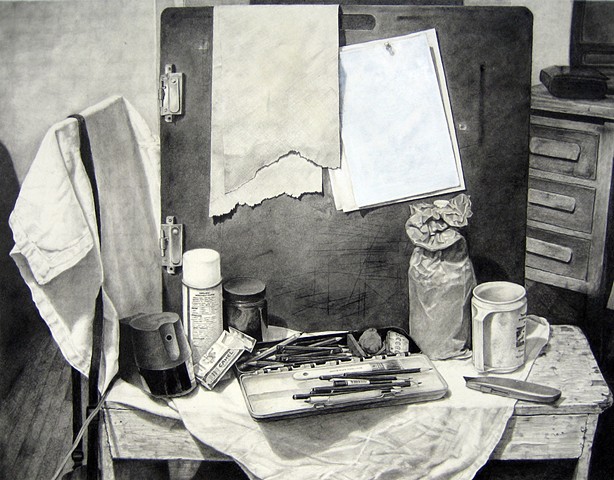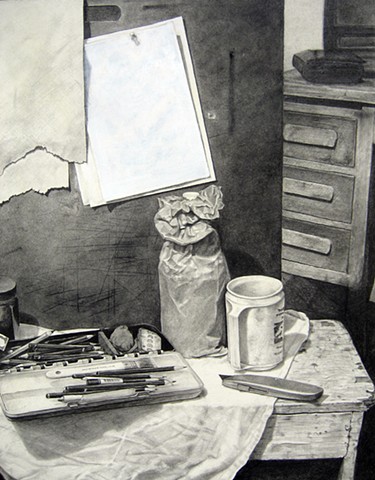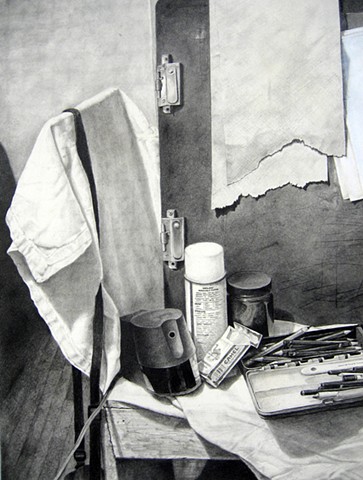MFA Work
Creative Statement – Still Lifes, Interior Spaces, Landscapes
Although I spend a great deal of time and effort on verisimilitude, there is nothing very remarkable about the images by themselves. The compositions are formally conventional representations of day-to-day life. I use a traditional painterly notation to title my work, still life or landscape, to identify the contextual mode of the painting, and with kitten or with train to identify the presence of a given subject in the painting.
The catalyst for the conceptual content in my work is the interaction between an image and its title. Unlike more traditional paintings, I deny the explicit representation of the subject in an image, creating an expectation but denying presence and thus establishing a conflict. The tension in the pictures is about what you cannot see, at least with your eyes.
I invite viewers to contemplate the perceived disparity between image and title. Sometimes this means completing the picture mentally, visualizing the invisible spaces that exist outside the picture plane. Sometimes this means evaluating one’s own role as a viewer in relation to the context and subject of a given piece. I chose to make work in which the title acts as more than annotation, but rather as a component which, in conjunction with an image, facilitates the dialogue.
Epistemological and psychological questions are the impetus for my work. Although we are fallible beings, it remains psychologically difficult for us to acknowledge the inherent uncertainty in our actions and beliefs. Whether walking down a deserted street at night or encountering artwork that challenges our sensibilities, ambiguity leads to anxiety, an emotion that tends to further distort our perceptions as individuals and societies. I selected my working strategies to confront viewers with this conflict, to investigate different conclusions and perhaps even to embrace uncertainty.

